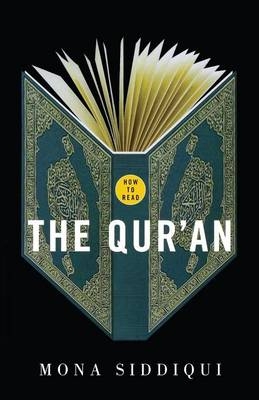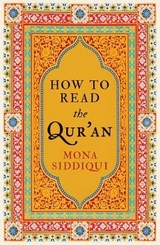
How to Read the Qur'an
Seiten
2007
Granta Books (Verlag)
978-1-86207-945-8 (ISBN)
Granta Books (Verlag)
978-1-86207-945-8 (ISBN)
- Titel erscheint in neuer Auflage
- Artikel merken
Zu diesem Artikel existiert eine Nachauflage
Presents how the Qur'an has been understood by Muslims in the traditions of Islam as well as in worship. This book explores prophecy, law, sin and salvation, and what the Qur'an teaches about the place of Islam as God's last revelation in human history. It also presents what the Qur'an says about gender, jihad, and the role of ritual in Islam.
The Qur'an is the scripture of Islam, sacred to over one billion Muslims worldwide. It is regarded by Muslims as the direct word of God, timeless and unchanged. Muslims turn to the Qur'an not only for prayer and worship but to understand the essence of their relationship with God. Mona Siddiqui considers how the Qur'an has been understood by Muslims in the intellectual traditions of Islam as well as in popular worship. She explores the 'big themes' of prophecy, law, sin and salvation, and what the Qur'an teaches about the particular place of Islam as God's last revelation in human history. She also considers head on at what the Qur'an says about gender, jihad, and about the role of ritual in Islam. Siddiqui's central concern is that Muslims must look to the Qur'an to breathe new life into the social and ethical relations between Muslims and non-Muslims. The Qur'an must no longer be seen as the problem but the solution to the challenges posed by pluralism today.
The Qur'an is the scripture of Islam, sacred to over one billion Muslims worldwide. It is regarded by Muslims as the direct word of God, timeless and unchanged. Muslims turn to the Qur'an not only for prayer and worship but to understand the essence of their relationship with God. Mona Siddiqui considers how the Qur'an has been understood by Muslims in the intellectual traditions of Islam as well as in popular worship. She explores the 'big themes' of prophecy, law, sin and salvation, and what the Qur'an teaches about the particular place of Islam as God's last revelation in human history. She also considers head on at what the Qur'an says about gender, jihad, and about the role of ritual in Islam. Siddiqui's central concern is that Muslims must look to the Qur'an to breathe new life into the social and ethical relations between Muslims and non-Muslims. The Qur'an must no longer be seen as the problem but the solution to the challenges posed by pluralism today.
Mona Siddiqui is Professor of Islamic Studies and Public Understanding at the University of Glasgow. She is a Fellow of the Royal Society of Edinburgh and the Royal Society of Arts. She has published in classical Islamic law and Muslim theology.
| Erscheint lt. Verlag | 3.9.2007 |
|---|---|
| Verlagsort | London |
| Sprache | englisch |
| Maße | 129 x 197 mm |
| Themenwelt | Geisteswissenschaften ► Religion / Theologie ► Islam |
| ISBN-10 | 1-86207-945-5 / 1862079455 |
| ISBN-13 | 978-1-86207-945-8 / 9781862079458 |
| Zustand | Neuware |
| Haben Sie eine Frage zum Produkt? |
Mehr entdecken
aus dem Bereich
aus dem Bereich



